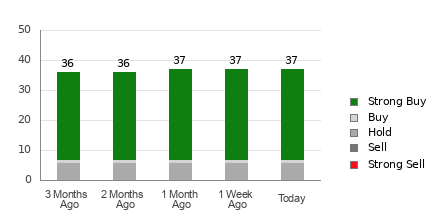Baidu (NASDAQ: BIDU) has had its highs and lows, potentially transforming early investors into millionaires and then back, leaving them with shattered dreams. The Chinese tech giant, a dominant force in its homeland, faced a labyrinth of challenges that caused its stock to stumble, including fierce competition, a sluggish Chinese economy, and looming delisting threats that kept investors on edge. Despite these obstacles, Baidu remains a formidable player, with a valuation of $37 billion, standing tall as the largest search engine in China amidst turbulent waters.

Image source: Getty Images.
But what does the future hold for Baidu? Could it rise like a phoenix from the ashes, or is it destined for a more subdued path of growth? Let’s delve into the past and future of this tech giant to uncover its potential.
The Evolution of Baidu Across Two Decades
In its early years from 2005 to 2015, Baidu experienced meteoric revenue growth, with an astonishing compound annual growth rate (CAGR) of 74%. This surge was fueled by China’s economic boom, surging internet accessibility, and the departure of Alphabet’s Google from the Chinese mainland in 2010. However, the tides turned from 2015 to 2020, with Baidu’s revenue growth slowing to a CAGR of 10% as competitors like Tencent and Alibaba’s platforms gained traction, steering users away from Baidu’s services. As China’s economy cooled and the world was hit by a global pandemic, Baidu’s growth trajectory faced formidable headwinds, challenging its once-superior position.
Gradually, Baidu saw a glimmer of hope – in 2021, its revenue rose by 19% in USD terms, then declined by 8% in 2022 due to a turbulent macro environment. The subsequent year, 2023, witnessed a 6% revenue uptick, with its online marketing and cloud businesses showing signs of stabilization and expansion. The company’s innovative Managed Business Pages and AI services played a pivotal role in sustaining its growth momentum.
Navigating the Path Ahead
Looking forward, Baidu is banking on its Baidu AI Cloud platform to drive growth and diversify its revenue streams, aiming to reduce its reliance on digital advertising. Expanding its mobile app to provide integrated services for its users, Baidu aims to compete with industry rivals, including Tencent’s Weixin, in the app ecosystem battleground.
On the frontier of artificial intelligence, Baidu is ramping up its ERNIE large language model to introduce new generative AI features and rolling out cutting-edge driverless vehicle and robotaxi services, marking a strategic pivot beyond conventional platforms. While these initiatives appear promising, the heyday of explosive growth seems to be behind Baidu, as the search market in China matures, and economic dynamics shift.
Analysts foresee an 8% CAGR in revenue and a 12% CAGR in earnings per share from 2023 to 2025, indicating a transition for Baidu from a growth-oriented investment to a stable, mature tech stock.
The Future Valuation of Baidu: A Slow Climb or a Leap?
With Baidu’s stock currently valued at 12 times forward earnings, the road ahead may present challenges in commanding a higher valuation as its growth trajectory steadies. If Baidu maintains this multiple, sustains its earnings growth at a 10% CAGR, and exchange rates remain stable from 2023 to 2043, its stock could hover around $650 in two decades.
Though a $10,000 investment today could potentially grow to nearly $62,000 in 20 years, this figure pales in comparison to its past astronomical gains. While Baidu may offer a stable play on China’s gradual economic growth, investors eyeing dynamic growth prospects might find brighter opportunities elsewhere.
As the curtain falls on Baidu’s past glories, its future narrative unfolds, balancing between nostalgia for its heyday and caution for its evolving identity in the tech landscape.
Suzanne Frey, an executive at Alphabet, is a member of The Motley Fool’s board of directors.



